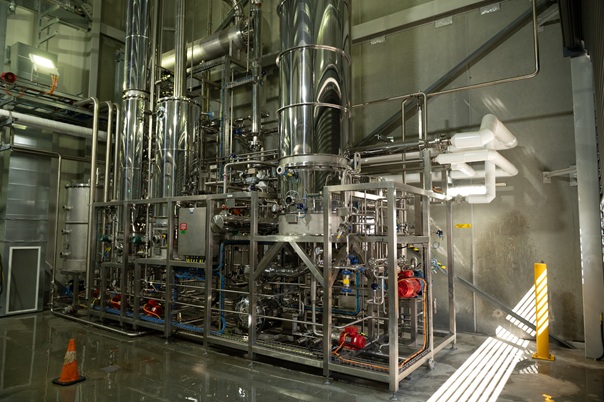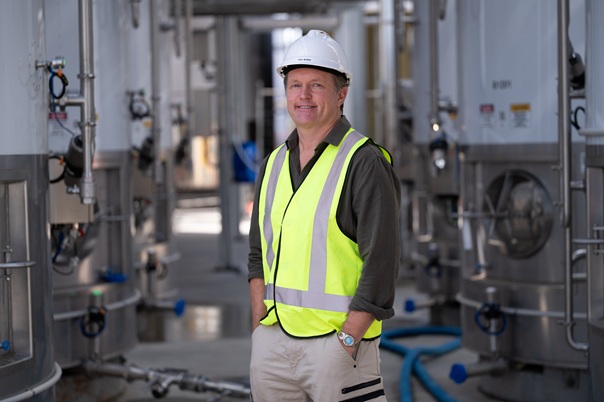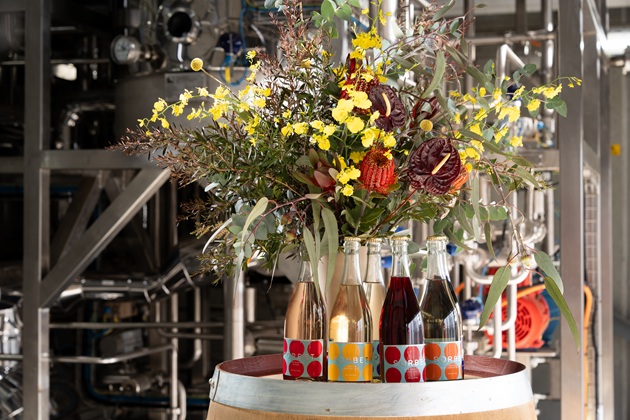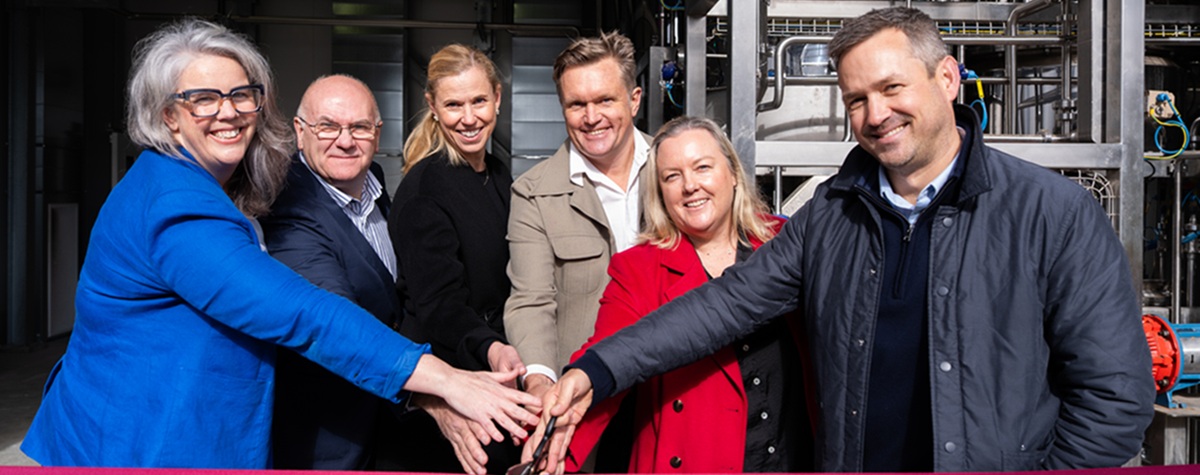The opening re-affirms TWE’s commitment to this category and innovation. It also bolsters the technology credentials of the South Australian site following its $165m expansion in 2022.

More than two years in the making, the new facility features the latest dealcoholisation technology (above), complemented by patent-pending processes for treating the aromatic component of wine that locks in flavour. It houses customised, exclusive GoLo equipment alongside proprietary processes that delicately process the wine’s extracted essence as part of the dealcoholisation process, allowing winemakers to protect the components responsible for the wine’s flavour and fragrance. The system has been designed to overcome challenges with existing processes for removing alcohol from wine that change its chemistry and impact richness, body and ‘mouthfeel’.
Group winemaker Toby Barlow explained it to Canopy: “We use a custom-built version of an evaporative distillation system known as a GoLo, developed in collaboration with an international partner. Based on vacuum distillation and similar to spinning cone technology, it’s a gentle process that removes alcohol at a low temperature so we can capture flavour and aroma.
“The wine that goes through the process is separated into three components: de-alcoholised wine, high-strength alcohol, and a smaller volume of liquid rich in aromas and volatile flavour compounds, which we refer to as the wine’s ‘essence’. The end-to-end process is distinctly different to other de-alcoholisation techniques because of the proprietary procedure to process and reintegrate the essence so it’s locked into the final reduced-alcohol wine.”
Below: group winemaker Toby Barlow

Treasury Wine Estates’ chief supply and sustainability officer, Kerrin Petty, adds: “This world-leading facility cements our position as a global pioneer in winemaking. This state-of-the-art technology and proprietary process for de-alcoholisation is our latest step in building a hub of innovation, technology and sustainability in the Barossa Valley, where we’ve been crafting wine to delight consumers for more than a century.”

The facility is producing the next generation of low- and no-alcohol wines for brands in TWE’s global portfolio including Squealing Pig and Pepperjack, which will complement other low- and no-alcohol offerings in the Matua, 19 Crimes, Lindeman’s, and Wolf Blass brands. Joining these established global brands is the new-to-market Sorbet (above), which blends traditional varietals like Glera (Prosecco in Australia), Rosé, Sauvignon Blanc, and Shiraz with fruit and berry flavours such as passionfruit, mango and lemon, and a lower ABV of 8%. Sorbet will be available from October 2025 in partnership with Endeavour Group.
Head of commercial wine for Endeavour Group, Leigh Firkin, says: “The new Sorbet range is a high quality, diversified selection of lower-alcohol wine that responds to consumers wanting refreshment in their drink. For consumers, the artisanal nature of wine needs to be reflected in lower-alcohol alternatives as much as full-strength versions – and that comes through with a fresh take on classic varietals in Sorbet.”
Research from the global authority on beverage alcohol data and intelligence, IWSR, forecasts a 5% compound annual growth rate for the no- and low-alcohol wine market between 2024 and 2028. Data shows that 50% of wine drinkers are reducing their alcohol intake, but taste continues to be the biggest barrier to purchasing wine that’s lower in alcohol.
TWE was an early pioneer in the no- and low-alcohol category, introducing a range of Seppelt low-alcohol wines in 1993. Barlow says bringing the de-alcoholisation process in-house will improve the quality of no- and low-alcohol wines, giving consumers more choice while reflecting the character of the grape varietals: “The complex interaction of aromas and flavours that reflect people and place is part of the joy of wine. Blending our winemaking credentials with customised technology helps us create great-tasting wine that has less alcohol, or none at all. We’re creating products and consumer experiences that we know wine lovers all over the world are looking for.”
'This technology has helped us solve the flavour puzzle'Sarah Parkes, general manager of sales and marketing for TWE’s global premium division, says the expansion of its no- and low-alcohol range reflects the growing popularity of the category: “Flavour has historically been a barrier for wine drinkers exploring a no- or low-alcohol alternative – this technology has helped us solve the flavour puzzle, and it’s had outstanding feedback from consumers so far. With award-winning low- and no-alcohol wines already under our belt, we’re looking forward to sharing this next generation of great-tasting wines with consumers from next month.”











.png)









